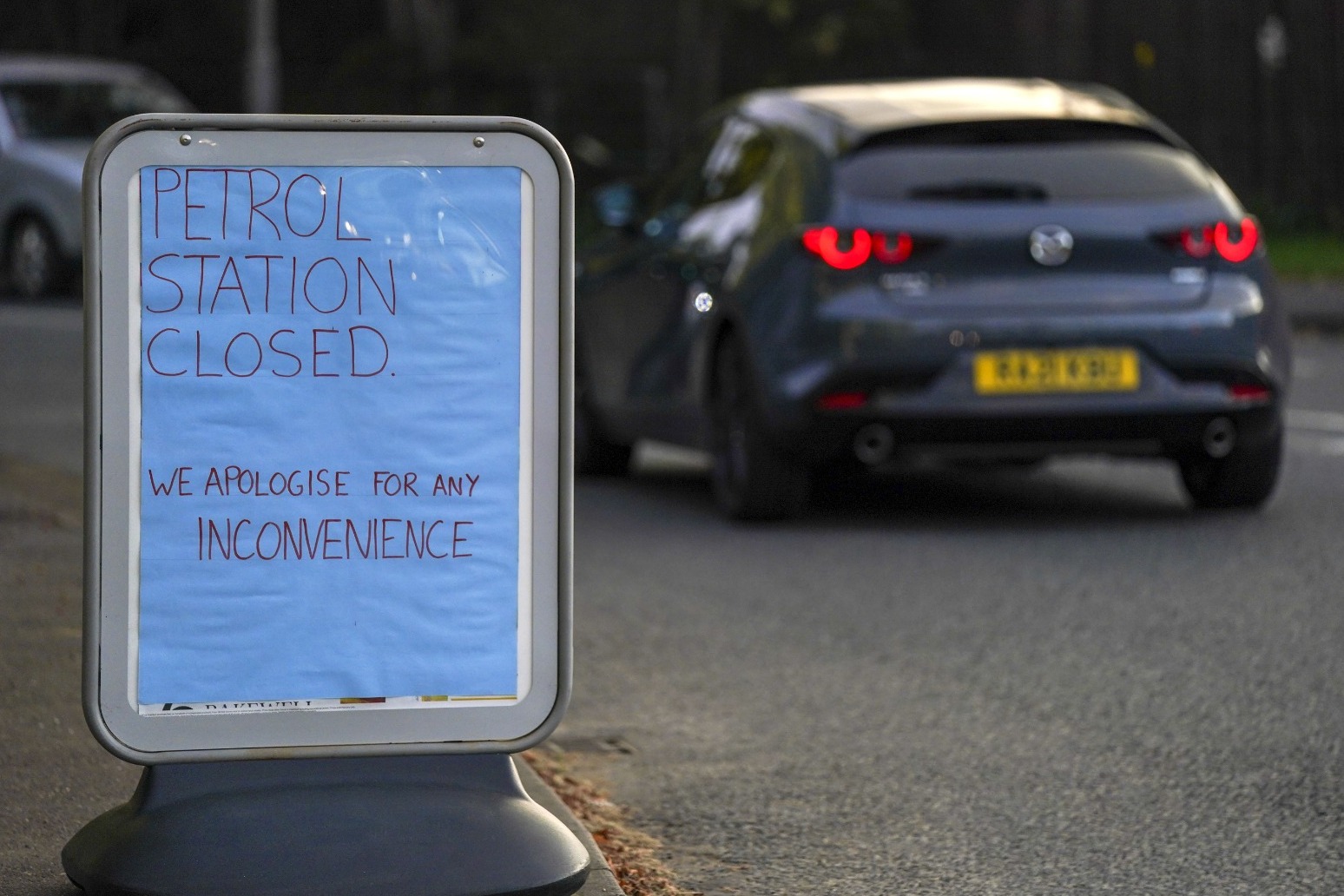
Downing Street considering temporary measures to ease HGV driver shortage
The Government is considering temporary measures to tackle the shortage of HGV drivers which is wreaking havoc on a number of UK industries.
No 10 insisted on Friday night that any measures introduced would be “very strictly time-limited” amid reports that Boris Johnson had allowed ministers to relax UK immigration rules to allow more foreign drivers into the country.
And although Downing Street would not confirm whether any decisions had been made, Transport Secretary Grant Shapps earlier promised to “move heaven and earth” to get the situation solved.
The Financial Times and the Telegraph reported that the Prime Minister had given ministers the go-ahead to temporarily lift visa restrictions for foreign drivers.
The newspapers said up to 5,000 temporary visas could be granted for HGV drivers, while the Financial Times said a similar number would be approved for food processing workers, especially in the poultry industry.
Ministers met to discuss the plans on Friday, with reports suggesting the final sign-off could come over the weekend.
Liberal Democrat leader Sir Ed Davey said the changes had come too late for many.
He said: “The arrogance of Boris Johnson has cost jobs. He knew there was a fix to this problem but ploughed on regardless. He owes the British people an apology.”
It comes as the CBI called for ministers to establish a taskforce on the same level as the Cobra emergency committee to deal with supply issues which have seen petrol forecourts close and empty shelves in supermarkets.
And there have been warnings that disruption to festive preparations will be “inevitable” if progress is not made to solve the shortfall of around 90,000 lorry drivers.
Esso, BP and Tesco forecourts have been affected by challenges getting petrol deliveries.
BP said that around 20 of its 1,200 petrol forecourts were closed due to a lack of available fuel, with between 50 and 100 sites affected by the loss of at least one grade of fuel.
A “small number” of Tesco refilling stations have also been impacted, said Esso owner ExxonMobil, which runs the sites.
And on Friday the EG Group, which has around 400 petrol stations in the UK, said it was imposing a £30 limit on customers “due to the current unprecedented customer demand for fuel”.
Meanwhile, around one in six adults in Britain said they were not able to buy essential food items at some point during the past two weeks due to products not being available, according to a survey by the Office for National Statistics.
A Downing Street spokesman said: “We have ample fuel stocks in this country and the public should be reassured there are no shortages.
“But like countries around the world we are suffering from a temporary Covid-related shortage of drivers needed to move supplies around the country.
“We’re looking at temporary measures to avoid any immediate problems, but any measures we introduce will be very strictly time-limited.
“We are moving to a high-wage, high-skilled economy and businesses will need to adapt with more investment in recruitment and training to provide long-term resilience.
The Transport Secretary earlier tried to dissuade drivers from panic-buying petrol, although there have been chaotic scenes at petrol stations across the country.
On Friday queues started to form outside some filling stations.
Andrew Opie, director of food and sustainability at the British Retail Consortium, said: “HGV drivers are the glue which hold our supply chains together.
“Without them, we are unable to move goods from farms to warehouses to shops.
“Currently, the UK faces a shortfall of around 90,000 HGV drivers and it is consumers who ultimately suffer the consequences.”
Tony Danker, CBI director-general, said: “After speaking with hundreds of business leaders this week, it’s clear there’s a total mindset shift from growing to coping.
“This is now a major threat to our recovery and the Government needs to step up its response to a new level of both speed and boldness.
“Government is right to keep up the pressure on companies to adapt and not rely on immigration long term, but temporary visas are the only way to alleviate the disruption of shortages in critical skilled parts of the economy in weeks and months instead of years.
“Getting skills programmes right immediately is key to ensuring that these measures are only needed temporarily.”
Published: by Radio NewsHub